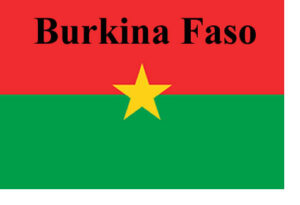 Burkina Faso’s government aims to educate its young people to become responsible, productive, and creative citizens. The country’s 2007 Education Orientation Law introduced universal compulsory free education in 45 national districts with the goal of building an integrated system of education for all students ages 6-16. While the country is among the world’s poorest, school enrollment has risen steadily, and the government and its development partners have implemented reforms including bi-lingual education in French and national languages to improve access to schooling for all children.
Burkina Faso’s government aims to educate its young people to become responsible, productive, and creative citizens. The country’s 2007 Education Orientation Law introduced universal compulsory free education in 45 national districts with the goal of building an integrated system of education for all students ages 6-16. While the country is among the world’s poorest, school enrollment has risen steadily, and the government and its development partners have implemented reforms including bi-lingual education in French and national languages to improve access to schooling for all children.
Pre-primary education is not widely available in Burkina Faso; early childhood centers are mainly found in larger cities and towns. Primary education begins at age 6, lasts 6 years, and is obligatory (although attendance is not enforced). It is divided into three levels: two years of preparatory elementary school, two years of elementary school and two years of middle school. At the end of the final level, students earn a certificate of primary studies (CEP). Secondary students follow either a two-year or three-year track, depending on whether they wish to end their formal education at the high school level or pursue further studies at a university or technical school. Special multi-lingual schools also have been established to foster proficiency in French and the eight major national languages, as well as livelihood skills training. High school graduates earn a baccalaureate certificate.
The following chart depicts the grading scale for secondary and post secondary institutions:
| Scale | Grade Description | U.S. Grade Equiv. |
|---|---|---|
| 14-20 | Tres Bien (Very Good) | A |
| 12.00-13.99 | B+ | |
| 11.00-11.99 | Bien (Good) | B |
| 10.10-10.49 | Assez Bien (Good Enough) | C+ |
| 10.00-10.09 | Passable (Pass) | C |
| 9.00-9.99 | C- | |
| 8.00-8.99 | D | |
| 0-7.99 | Echec (Fail) | F |
Primary school students study language arts, mathematics, science, history and geography. Instruction in civics, health, nutrition and physical education is also offered.
Secondary students learn French, basic English, history and geography, mathematics, earth science and biology; depending on a student’s track he or she may also take physics, chemistry, and philosophy.
Higher education in Burkina Faso is provided by four public universities, two Catholic universities, and a growing number of private and technical colleges, including a branch of the International Institute for Water and Environmental Engineering.
© 2025 Gaetranslations | Terms & Conditions
Website by: Timefortheweb